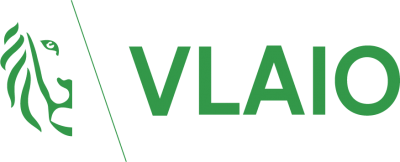Topics
We organise our actions in six thematic & strategic agendas:
Strategic Agendas:
Bio-economy
Circular Construction
Chemicals/Plastics
Manufacturing Industry
Food Chain
Water Cycles
Seven leverages provide additional support:
Leverage effects:
Lever Policy Instruments
Lever Circular Procurement
Lever Communication
Lever Innovation & Entrepreneurship
Lever Financing
Lever Jobs & Skills
Lever Research
What, why and how?
Why are we pursuing a circular economy?
Future visions 2050
How do we see our circular future?
About our management
Who steers what at Flanders Circular?
Billie Cup
The alternative to the disposable cup
Disposable cups take up a lot of space in public bins and are a major source of litter. Moreover, 99% of them are not recycled. It is hard to believe that water, raw materials, energy and transport are being wasted for something that we do not use for more than 10 minutes.
There is an urgent need for a reusable alternative that is also cheap, that the consumer does not have to carry around all the time, and that is accessible to anyone, anywhere.
Ineke Van Nieuwenhove and Vanessa Debruyne of vzw Mei Plasticvrij took up this challenge with the Billie Cup project. The Billie Cup is a reusable cup that can be bought and exchanged everywhere for a 1 euro deposit. It is a growing network of participating businesses in Belgium and the Netherlands, both catering establishments (chains and small businesses) and companies, universities, daily take-aways, hospitals, train stations, cities, etc. The more partner businesses participate, the more circular our concept becomes.
Billie Cup makes it easy for consumers to make a waste-free choice. For a small deposit, he has a cup that he can use for years at home, on the road or at the office, and that he can have refilled or returned at any participating business. And at the end of the day, the cups can also be easily recycled.
In order to get a realistic picture of market needs, business and environmental challenges, and possible collaborations, we decided to make this project a real case and test our concept with a few partner shops.
Ultimately, we aim to create an earnings model that can continue without subsidies.
Mei Plasticvrij vzw
Sectors
Themes
Organisations
MOST IMPORTANT
RESULTS
- Billie Cup is already offered in some 150 locations, half of which are coffee bars. We can also be found in 12 colleges and universities, all cafeterias at UZ Gent and branches of Foodmaker, 8tea5, Peck, 8 office buildings and hospitals such as UZ Gent. The network is growing every day, including in the Netherlands.
- This project can have a big impact on the waste mountain. Today, 99% of all disposable cups are not recycled. Our cup can be used at least 500 times and is then recyclable.
- Through the Billie Cup, with the necessary hip branding, press actions and social media campaigns, we can introduce a large public to the principles of circular economy and the sharing economy in an accessible way.
- The Billie Cups are also user-friendly for the catering industry: they are stackable, strong enough for small but also industrial dishwashers and available in 3 sizes. Billie Cup also regularly works together with local authorities that encourage their catering industry with a starter pack to make the switch to reusable.
MOST IMPORTANT
LESSONS LEARNED
- One of the challenges in finding catering partners is that more and more small coffee bars (in stations, shopping centres, etc.) no longer have dishwashing facilities due to a lack of space, but only work with disposable equipment. They are not interested in our guarantee system.
- We need to focus more on making our concept known to the general public. Only when consumers actively ask for Billie Cup or have one refilled can we convince more catering partners to become part of our network.
- All players must want to cooperate in one umbrella system. Many companies are still stuck in old economic thinking and would rather have their own reusable cups with a logo. They do not understand that our neutral system of support is more ecological.
- The demand for reusable alternatives and Billie Cup would increase significantly if there were stricter legislation, such as a ban or high(er) tax on disposable packaging.
WHAT DOES
THE FUTURE HOLD?
Billie Cup's expansion largely came to a halt during the lockdowns. All the large canteens in offices, colleges, universities and hospitals closed and the smaller coffee bars also had fewer takeaways because fewer people were on-the-go.
It was a time for Billie Cup to find new partners and opportunities. The system can only become profitable if we can scale up more quickly. For that, we need an injection of capital and extra manpower. The intention is that after the summer of 2021 we can fully focus on expansion in Flanders and the Netherlands.
















